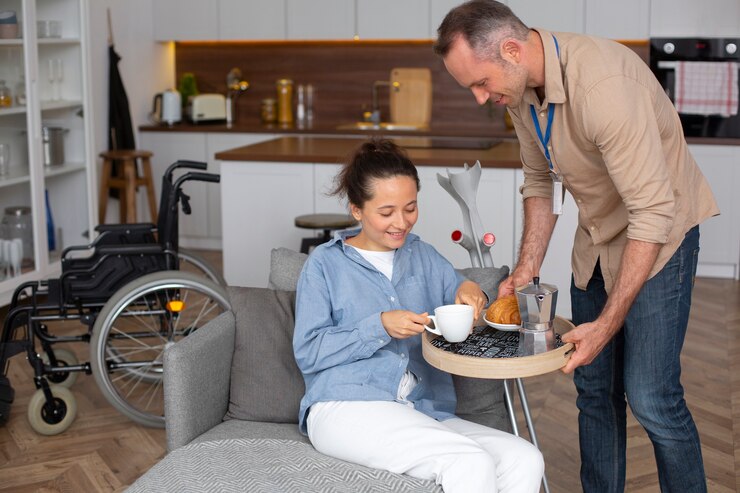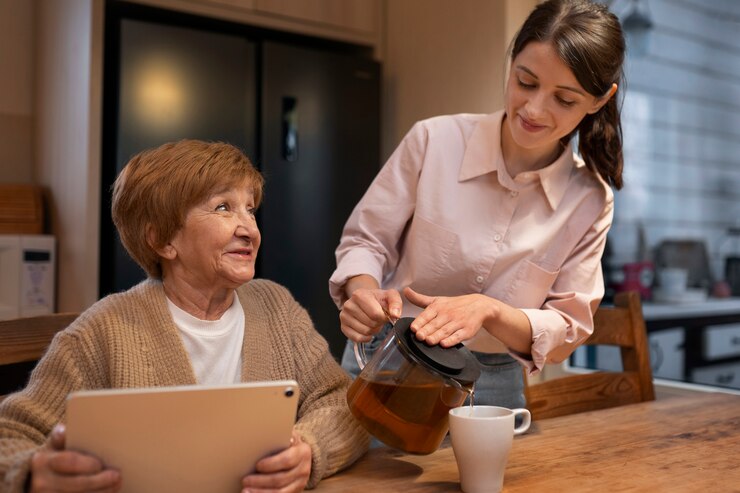Services

Services
Coppice Care
COPPICE CARE is a highly specialist organisation that provides housing and related care services to individual looked after in Local authority care within the United Kingdom.
- To provide privacy and facilitate individual attention, supervision and closer relationship among residents, and with the residential workers
- Arranging appropriate and basic clothing items where required
- Individual tailor health plans devised for each individual
- Life story work to capture the individual’s journey
- Views, Wishes and feelings direct work carried out with individual by consulting and listening in every possible area to ensure they are heard, and their wishes and feelings are taking into account throughout the assessment process. In addition to ensuring that individual have access to an independent advocate to champion their rights and wishes further should they wish.


Homebased Domicilliary Care
Domiciliary care means that you or your loved one will receive specialist support and assistance within the comfort of your own home. Many people can find that at a certain age, they begin to struggle with day-to-day tasks like washing up, doing the laundry, hoovering, or taking medication. In this case, a domiciliary care service will ensure that you have a fully trained carer to support with these activities.
Just like live in care, domiciliary care provides a valuable source of support and companionship, with a friendly face going a long way to offer comfort and a feeling of safety. Some people will receive support every day, while others will require it less frequently, perhaps once or twice a week.
ABout Domicilliary
This type of care benefits physical and mental health alike, with care workers providing companionship care and emotional support, along with also supporting with the more physical aspects of everyday care.
This type of care is a popular option amongst people who’d rather not permanently move out of their homes.
Who It’s Suitable For
Domiciliary care can be beneficial to people of all ages and can include care services like recuperation, convalescence, and rehabilitation. This type of support is best suited to people who wish to stay in their own homes but also like the idea of receiving regular visits from a qualified career.


Companionship
What is Companionship Care?
Companionship is the company of another person whom you enjoy spending time with such as your carefully matched Care Professional.
Companionship Care can:
- Help you or your loved one to keep active.
- Make sure you or your loved one have company and someone to socialise with
- Help to build confidence in going outside the home.
- Encourage participation in activities inside and outside the home.
- Help families take a rest from caring with peace of mind.
- Help to build confidence in going outside the home.
Why is Companionship Care important?
Loneliness can have serious effects on a person’s health and Home Instead aims to prevent social isolation by providing companionship care at home. Many people we support simply want company and conversation, whether they live alone and may not see family and friends as often as they would like, or just want a companion when going out to appointments or to do the shopping.


Live In Care
- Elderly live in care is a fully personalised type of care that offers peace of mind, comfort, security, and companionship that has transformed the lives of thousands of elderly people all over the country.
- Live in care for the elderly allows your loved one to keep the same routines, see friends and family as often as they like, and maintain their independence. An elderly live-in carer can also offer emotional support and flexible care that is built around your relative’s needs, tailored to your needs, and utterly bespoke.
Supported Living
Supported living empowers people with a wide range of needs to retain their independence by being supported to live in their own home. People in supported living have their own tenancy and with support, are responsible for their own bills. In some cases, they will furnish, or part furnish their home and take responsibility for repairing any damage. Supported living gives people the security of their own home, with their own tenancy agreement with a landlord.
There are options to live alone or to share with other people. The type of housing offered includes self-contained flats, houses, bungalows, and completely bespoke solutions. Some supported living homes will have assistive technology services which help residents to learn the skills they need for daily living.


Who is Supported Living for?
Supported living services help adults with a wide range of needs including:
- Learning disabilities
- Autism
- Mental health needs
- Behaviours that may challenge
- Complex needs
Learning Disabilities and Autistic Disorder
- Autism Spectrum Disorder is not a learning disorder but those with autism can be impacted by a learning disorder. Autism can have profound effects on a individual’s development. Because of autism’s wide range of behavioural and cognitive presentations, different individual with the condition can encounter a wide variety of challenges. One individual with ASD may excel in rote memorization yet struggle with understanding more complicated ideas. Another may encounter significant challenges with learning to speak or issues with reading and writing.
- Other conditions, such as attention-deficit/hyperactivity disorder (ADHD), can contribute to these same kinds of learning disorders or mimic them. Making sense of the interaction and differences between and among all these conditions can be difficult. Knowledge of these conditions, however, is important in understanding your individual’s learning difficulties and how to address them with the proper treatment modalities.

24-hour care
Unwavering Support Around the Clock - Ensuring continuous and compassionate care for individuals in need, every hour of the day.
Three meals a day
Three meals a day with varied food taking into account the child’s dietary and religious needs
Supervised contact session
Supervised contact sessions facilitated with family members providing updated reports
A mentoring and counselling service
A mentoring and counselling service supporting children if have experienced a traumatic childhood.
Employ the services of local contractors
A comprehensive repairs and maintenance service for all our properties with a planned maintenance and stock condition programme
Staff are qualified social workers
Staff are qualified social workers, youth workers or have a recognised health and social care qualification
Weekly reports
Weekly reports about the child’s progress holding quarterly action plan reviews with the child where appropriate.
Keyworker system
A keyworker system offering tailored individual packages to children, including safety agreements.
Residential living
A residential living service for children aged between 12 and 17 years of age to promote their physical and basic care.
Arranging or escorting children
Arranging or escorting children to activities or functions appropriate to their age and needs
Promoting daily activities
Supervising and promoting daily activities and routines including Schooling and homework
Education and training plans
Activity, safety, education and training plans devised for each child

